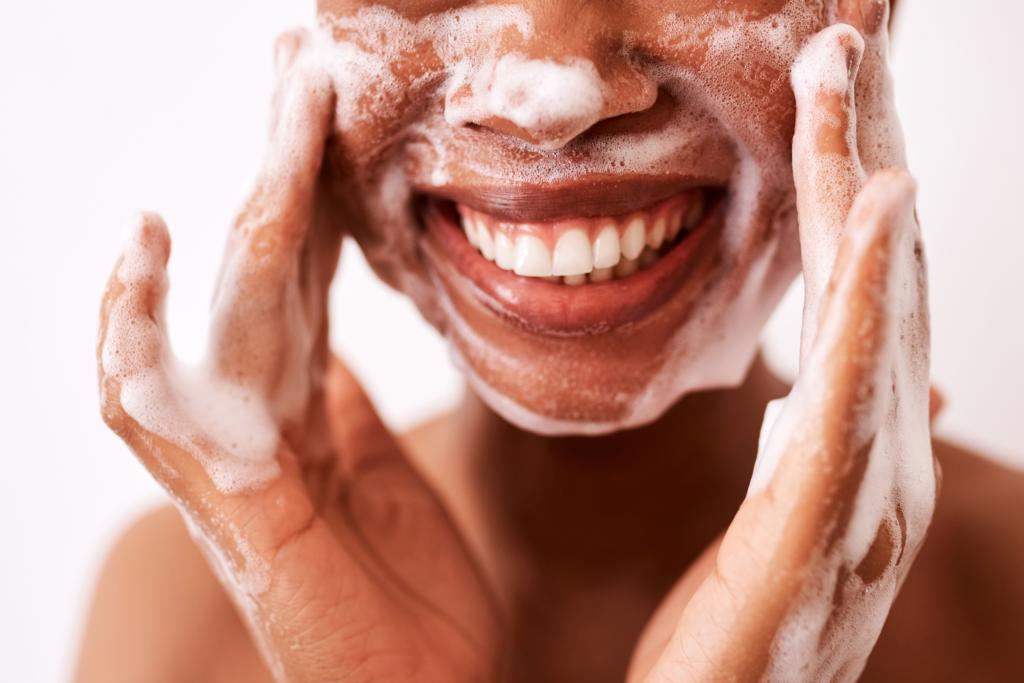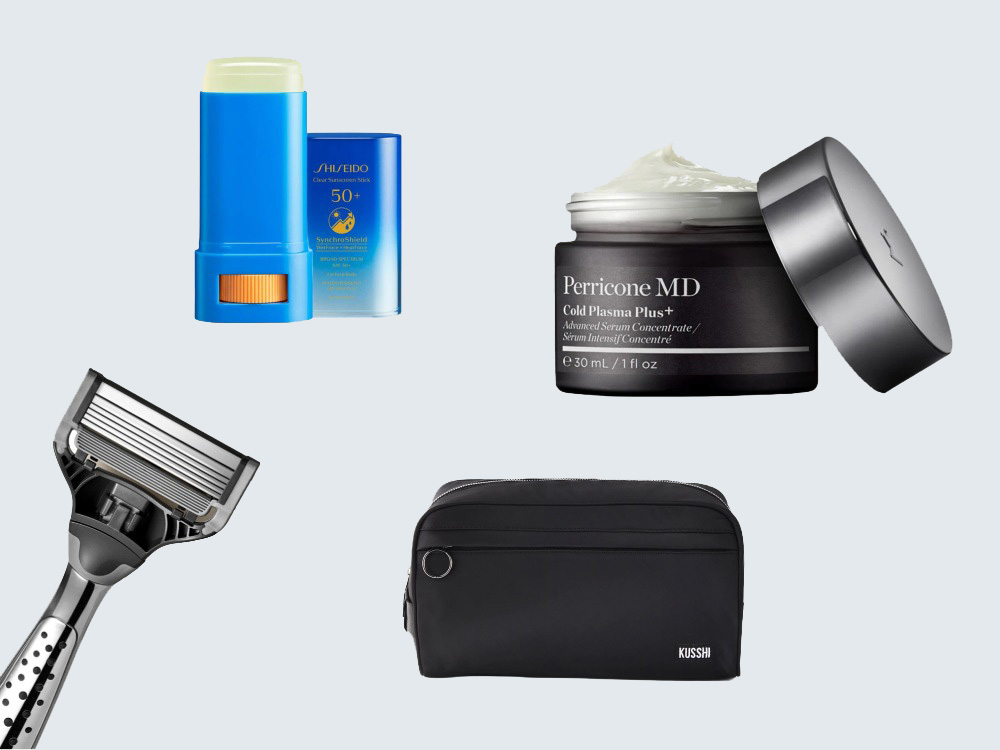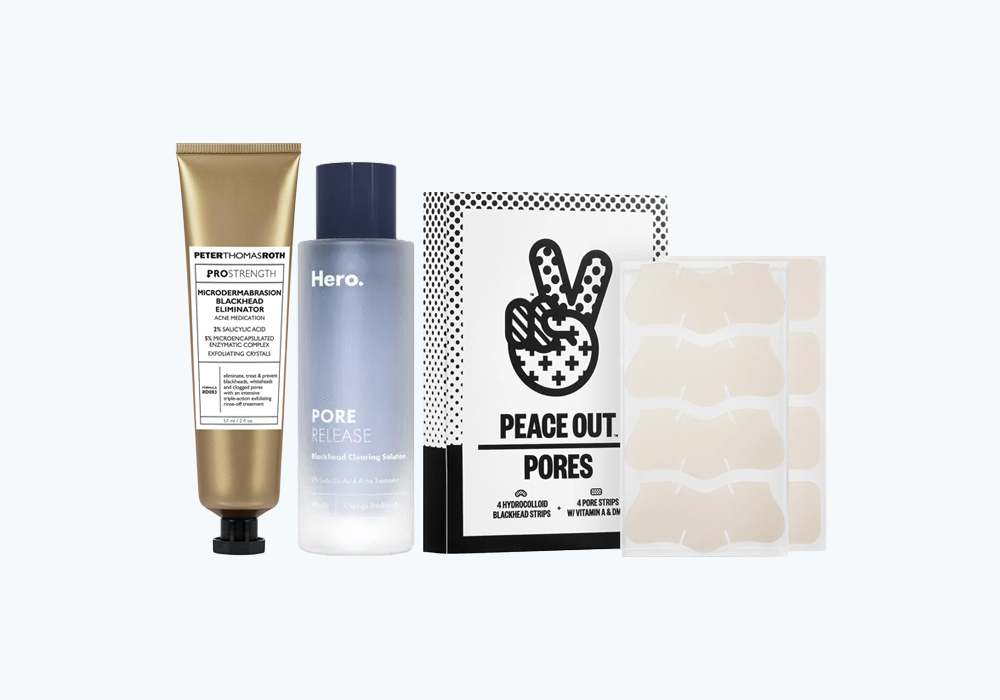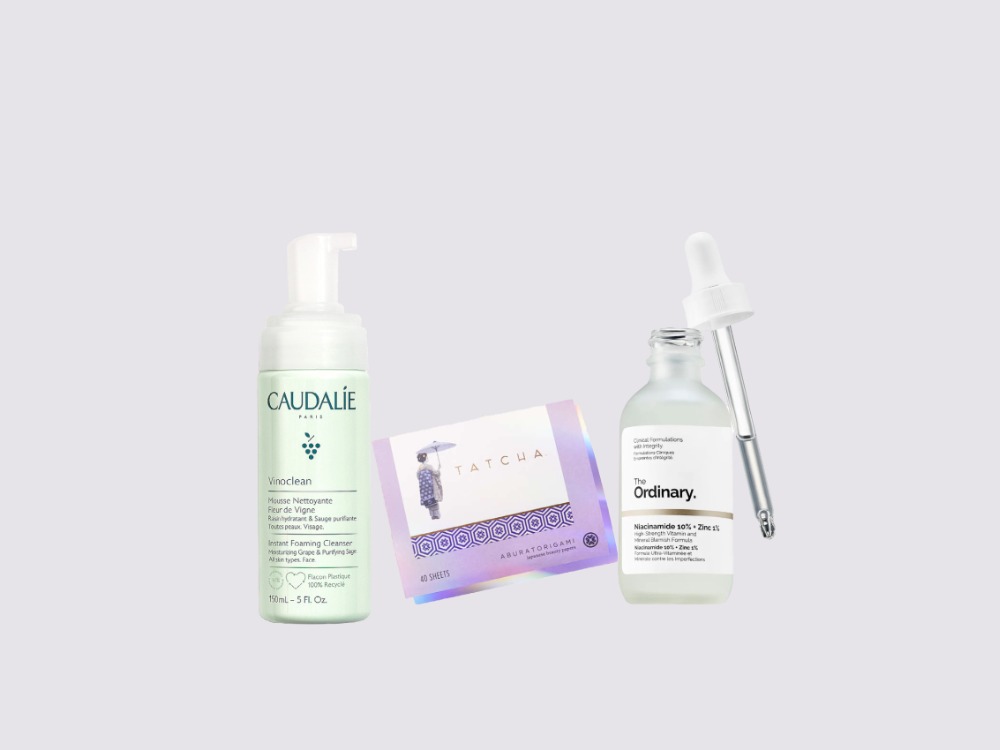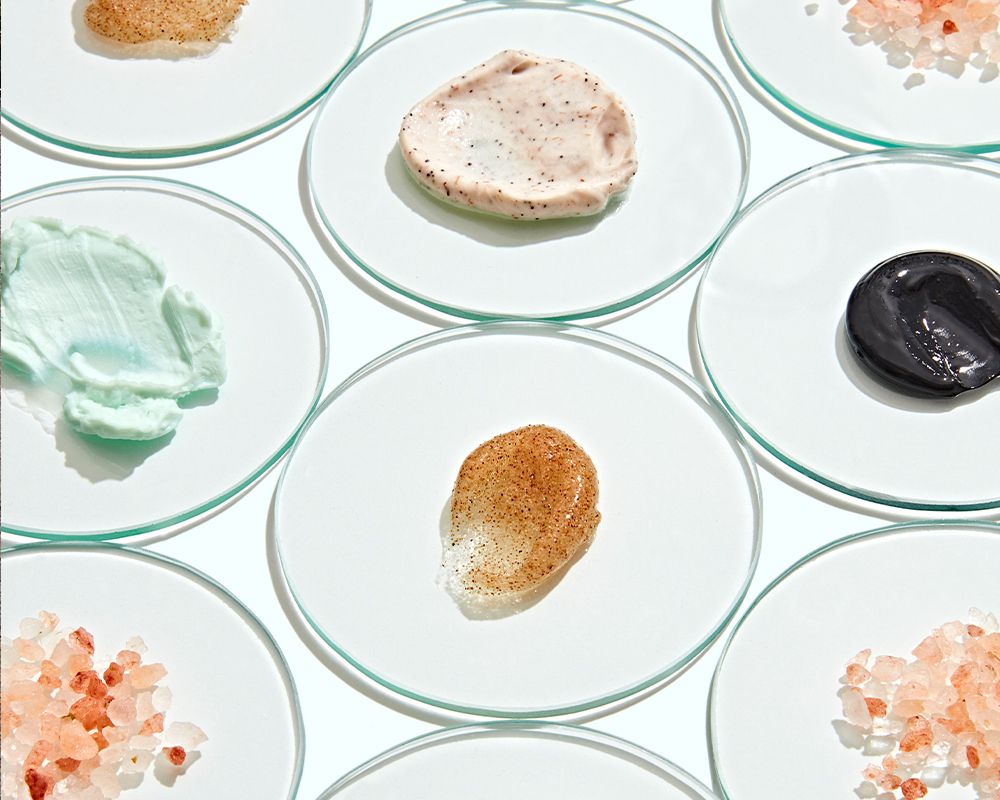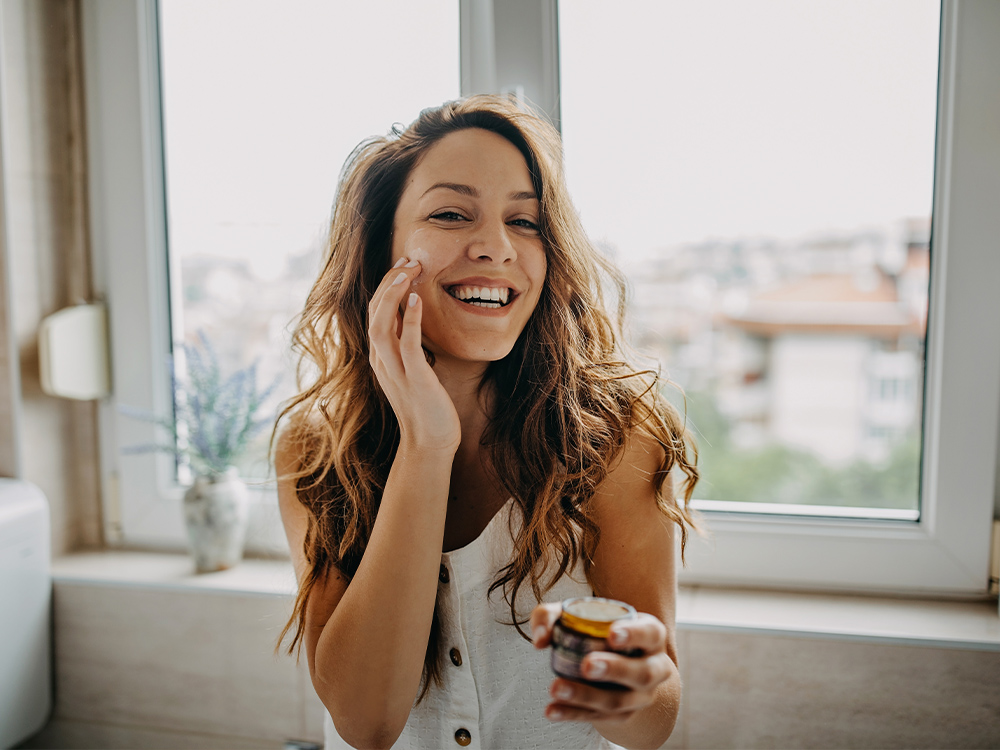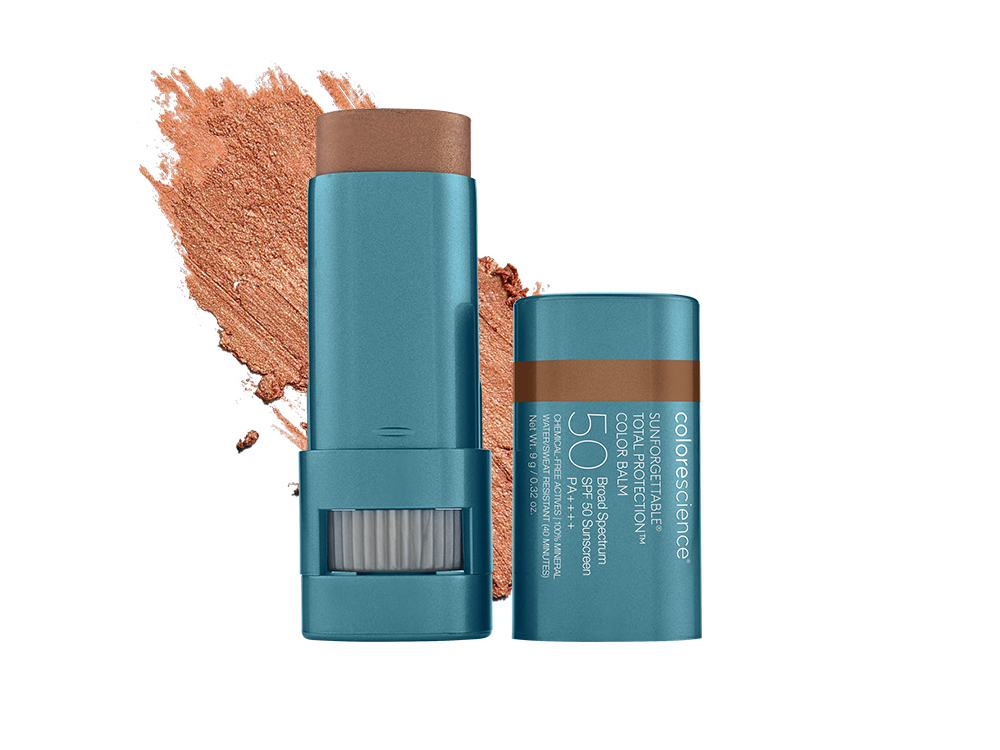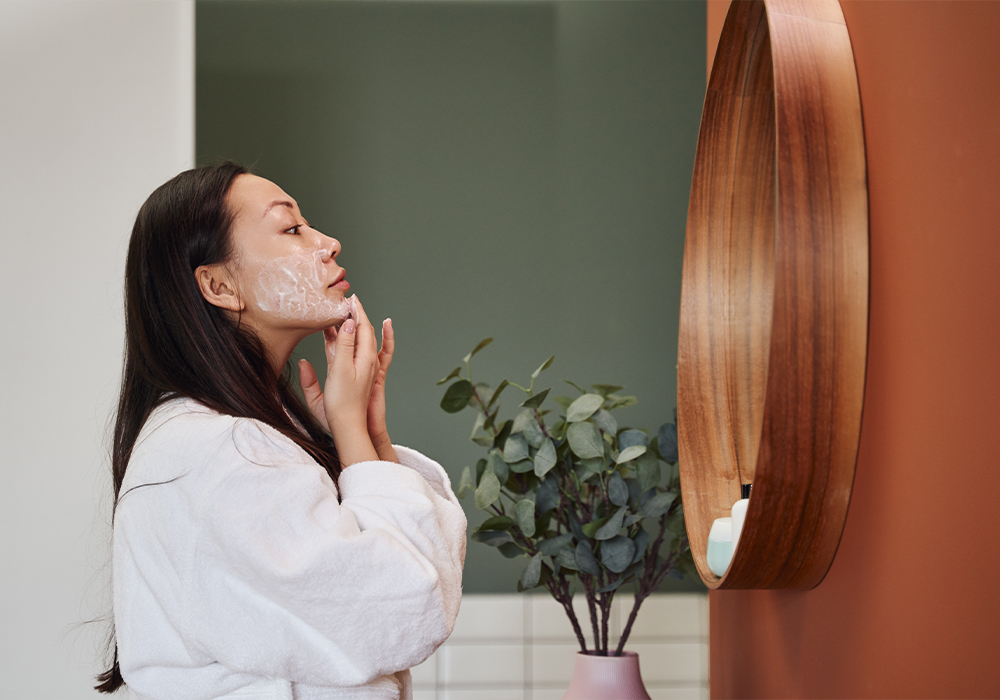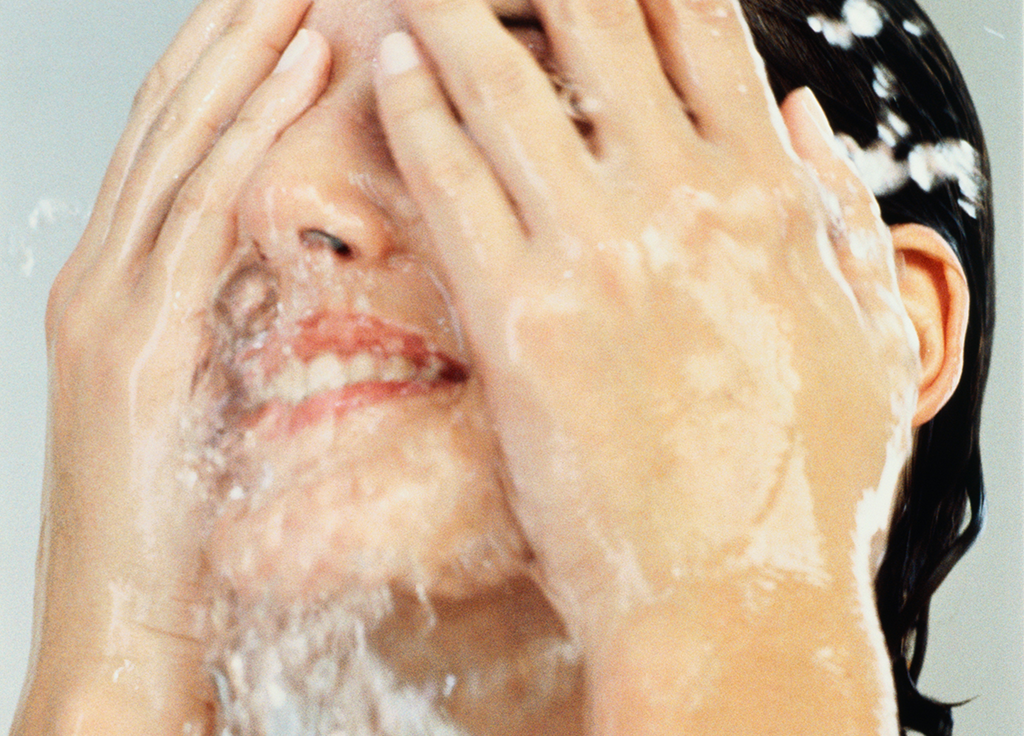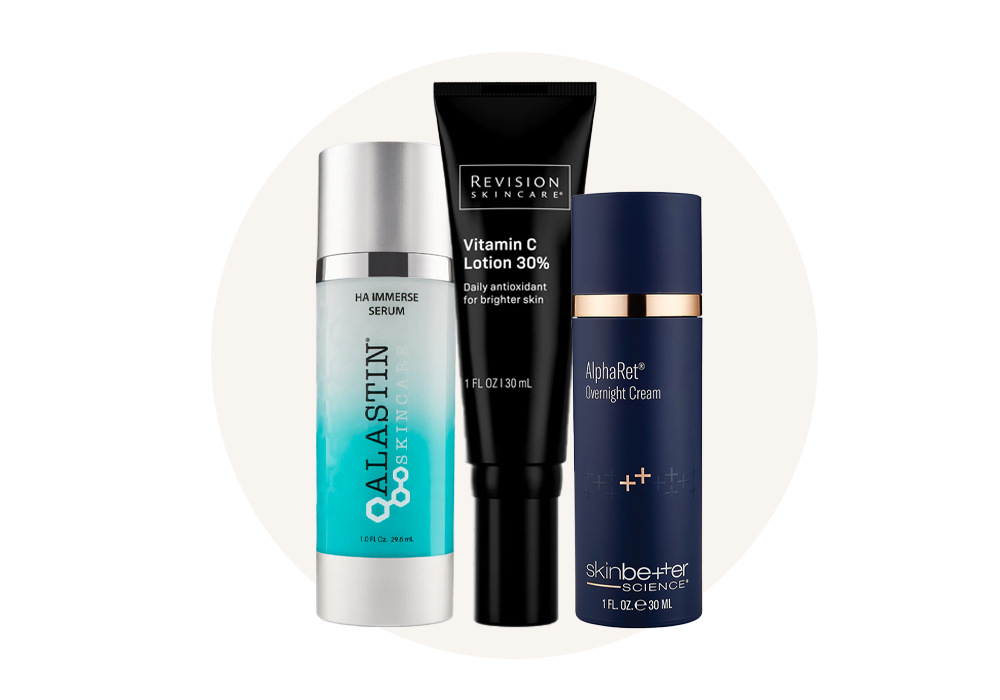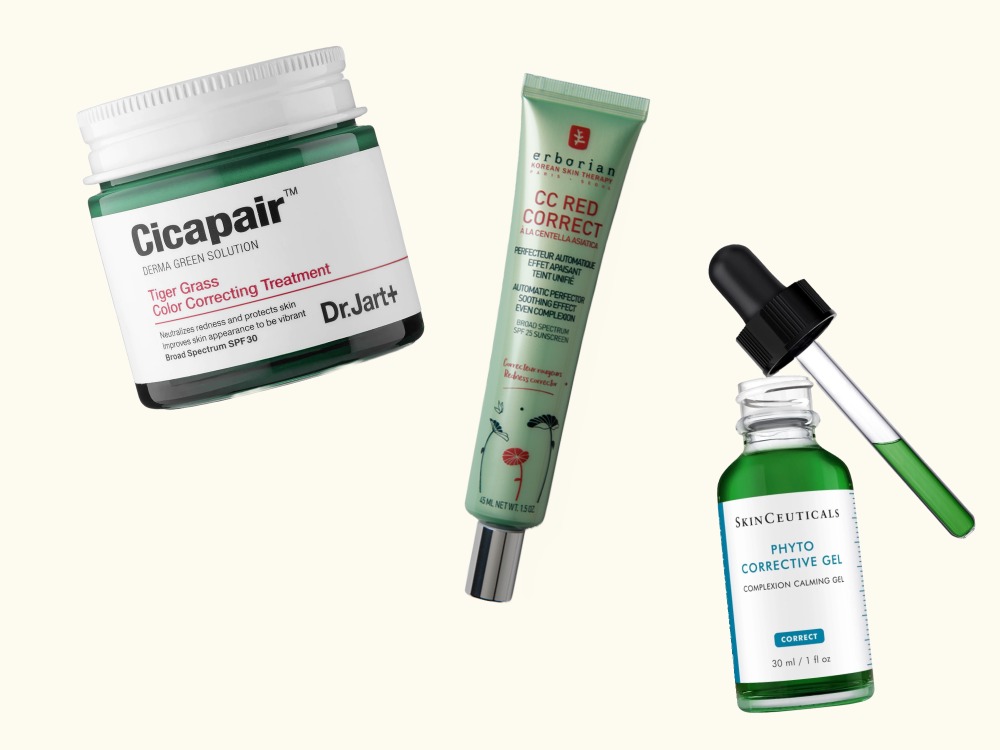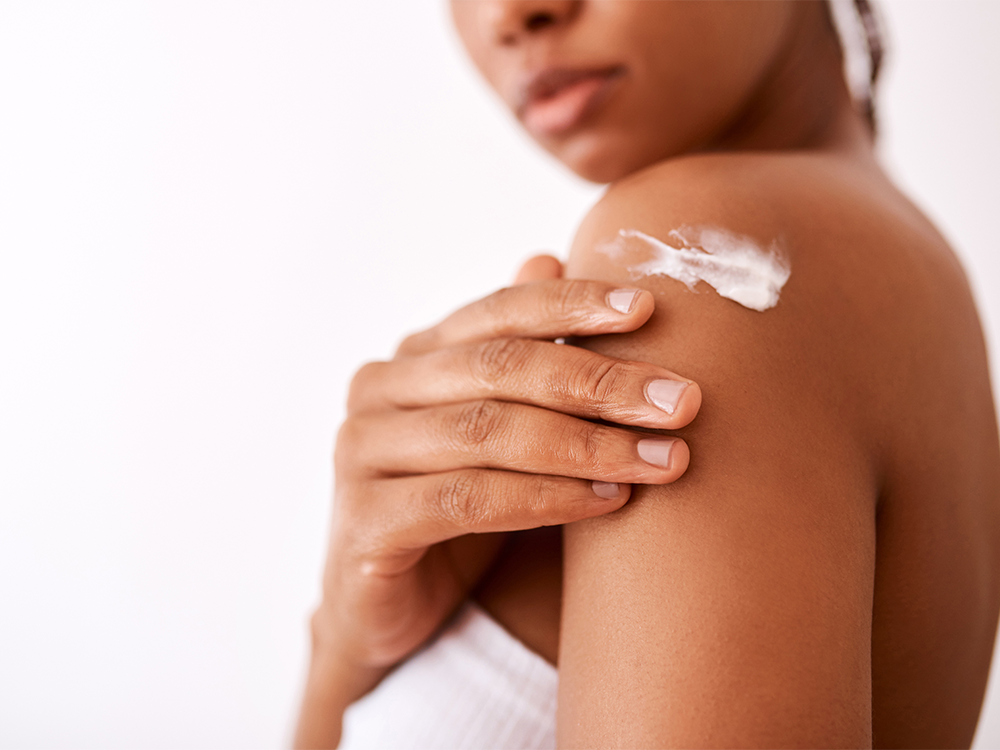Out of all the steps in your beauty routine, it’s likely that cleansing is your least favorite. While moisturizing or masking may feel like a miniature spa session, cleansing usually has you scrubbing at your face while water sprays all over your sink—hence, its reputation for being not fun. But while the process can be a little messy, cleansing your face is one of the most important steps in your routine if your goal is clear, healthy skin. To put it simply, this is not the step you should ever skip.
“Cleansing is an important part of skin care because it helps to remove dirt, sweat, bacteria, makeup, and other products from our skin,” explains Minneapolis, MN dermatologist Jenny Liu, MD. “Removing these impurities from skin can help prevent flare-ups of skin concerns, like acne breakouts.”
To help you make the most out of cleansing, we tapped an expert to break down exactly how to pick the right cleanser for your skin, which ingredients to look for, and the correct way to cleanse so that you’ll never wonder if you’re doing it wrong again.
First, what is the correct way to cleanse your skin?
Cleansing seems simple. After all, the general consensus on the steps for facial cleansing is as follows: Just splash water on your face, rub on a bit of cleanser, and immediately rinse. And while that’s technically not wrong, there are a few important things to note.
First, you must consider the water temperature before you begin cleansing. Water that’s too hot can strip the skin of its natural oils and facilitate dryness, so opt for warm water instead. Also, don’t scrub your skin too harshly. By being too rough, you can irritate the skin or speed up the formation of wrinkles over time (all that rubbing and tugging can damage the delicate skin!). When it comes to timing, Dr. Liu recommends lathering your skin with cleanser for about 30 seconds to one minute in order to thoroughly cleanse. Finally, don’t cleanse your skin more than twice a day. “The most important is the nighttime [cleanse], before going to bed to remove makeup, sunscreen, dirt, oil, and bacteria that can build up throughout the day,” explains Dr. Liu. In the morning, a gentle cleanser or water is sufficient.
What ingredients should you look for in a cleanser?
As with any skin-care product, the ingredients you use should complement your skin type. For oily skin, Dr. Liu asserts that foaming or gel types are often more suitable. “Foaming cleansers are great at removing oil, but can sometimes be too harsh for dry skin,” she says.
Gel cleansers have a lighter, airy texture, are effective at cleaning and rinse away without residue, making them great for most skin types, including combination and oily skin. These kinds of cleansers typically contain exfoliants like glycolic acid or clarifying clay or charcoal.
For sensitive or dry skin, stick to gentle or cream cleansing lotions that contain moisture-boosting ingredients like hyaluronic acid and ceramides. A good option is the CeraVe Hydrating Facial Cleanser ($7) which helps to retain moisture in the skin while also reinforcing the skin barrier.
When it comes to acne-prone skin, Dr. Liu recommends choosing cleansers that contain salicylic acid or benzoyl peroxide. “My personal favorite is the CeraVe Acne Foaming Cream Cleanser with 4 percent BPO and ceramides, which is effective yet gentle on the skin,” she says.
How can you pick the right type of cleanser for you?
As mentioned, the right cleanser for you is dependent on your skin type. So if you have oily skin, opt for a gel or foaming cleanser. Those with dry or sensitive skin should buy a cream cleanser. But before you hit the checkout line, there’s a few other things to consider.
“In general, most people are often way too harsh on their skin when it comes to cleansing,” says Dr. Liu. “You don’t need to feel squeaky clean to achieve an effective cleanse. That is actually a sign of dryness and the right cleanser should be hydrating for your skin.” In order to pick the right product to wash your face with, Dr. Liu recommends sticking to pH balanced cleansers that are formulated with a pH close to your skins’ pH, which generally clocks in around a five or six on the pH scale. Also, regardless of skin type, cleansers with ingredients like glycerin, niacinamide, hyaluronic acid, and ceramides, are always a good choice and can be found in most CeraVe cleansers at the drugstore.
Should you double cleanse?
Short answer: If you wear a lot of makeup, consider double cleansing. Some gentle cleansers aren’t strong enough to break down thick makeup residue and thoroughly clean the face, which is when double cleansing is ideal.“Cleansing oil is great for dry skin, but many skin types can benefit from its ability to remove oil and makeup, and may often use as first step in the double cleansing routine.” Micellar water and makeup-removing wipes also serve as effective first steps when double-cleansing.
To double cleanse effectively, start by using an oil-based cleanser, makeup-remover wipe or micellar water, such as CeraVe’s Hydrating Micellar Water, to remove makeup, followed by a water-based cleanser to wash away any left-over dirt. Once skin is clean, immediately follow up with your favorite moisturizer in order to seal in moisture.
